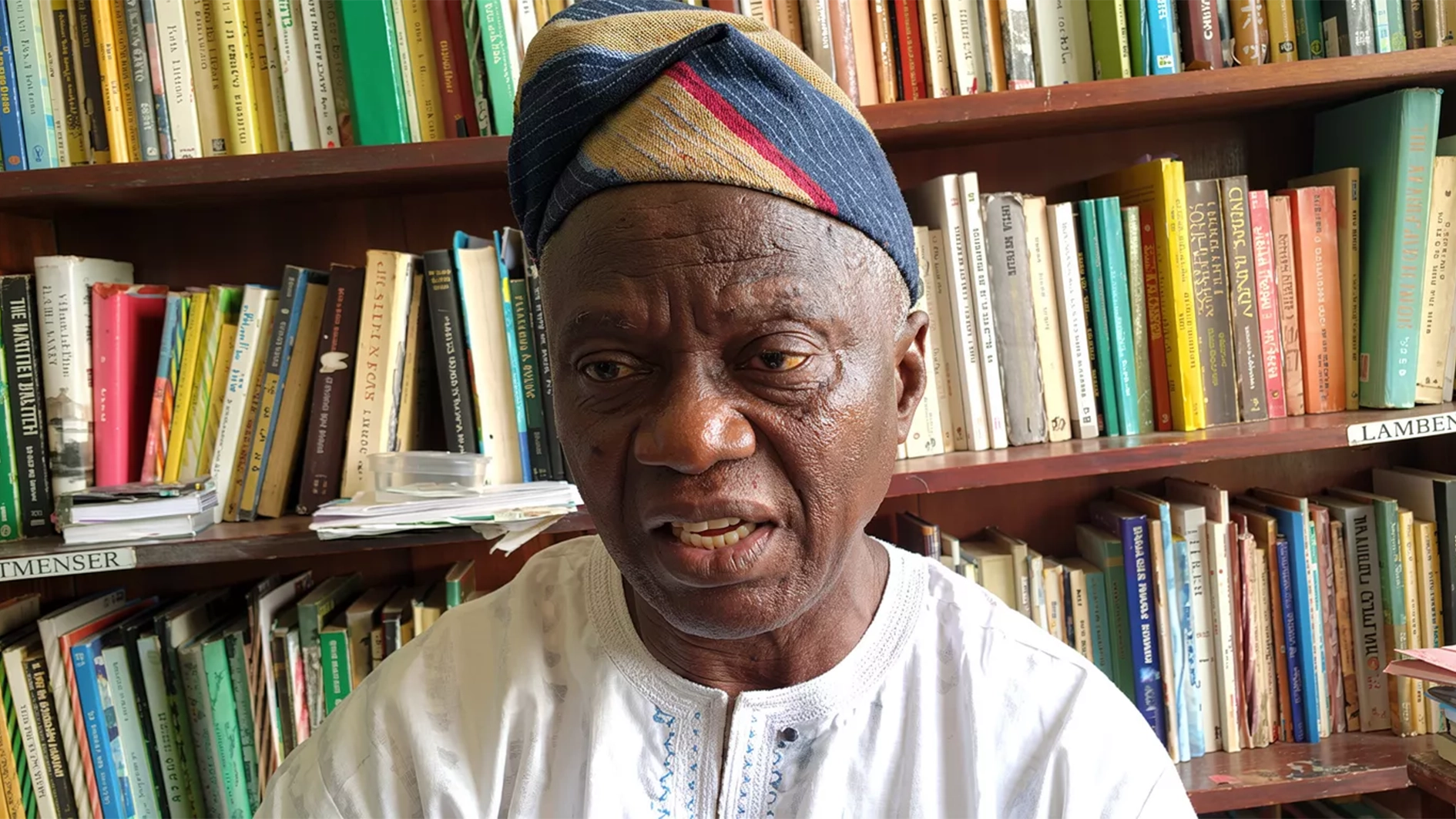
Benedict Okpala is the Chief Executive Officer of Kiru Energy, an innovative solar energy company revolutionising Nigeria’s energy landscape. In this interview, he shares his vision for making clean energy accessible and affordable. From powering small businesses to transforming entire market clusters, Okpala discusses how Kiru Energy is creating lasting impact by combining quality technology with flexible payment solutions, helping businesses thrive while building a sustainable future
What inspired you to transition from waste recycling to solar energy solutions?
Our shift from waste recycling to solar energy wasn’t just a business decision, it was a real eye-opener for us. While working in recycling, we kept hitting walls. In Nigeria, we don’t have the organised waste sorting systems you see in other countries, it doesn’t start in homes, and that makes everything downstream so much harder.
Then something clicked. Being university students ourselves, we were living through the constant headache of power outages on campus. We saw how it affected everything -from studies to basic life activty. You’d be in the middle of an important assignment, and boom, darkness for the next weeks. That’s when it hit us: here was a problem we could actually solve, something that would make a real difference in people’s lives. We saw a chance to not just fix a problem, but to do it in an innovative way that could transform how our universities function
What were the biggest challenges you faced when starting Kiru Energy, and how did you overcome them without prior business experience?
Honestly, we were engineers trying to be business people overnight! We had the technical know-how but had to learn business basics through trial and error – sometimes painful, but always educational.
Then there was the funding challenge. Unlike software startups, solar energy needs serious upfront investment, you can’t install solar panels with just code. We turned this into a positive by focusing on making money early rather than chasing investment. It worked, we became profitable pretty quickly.
The trickiest part was scaling. With a piece of software, you can serve a million new users instantly. But in solar? Each new customer needs their own physical setup, panels, batteries, inverters, the works. That makes growth much harder. But you know what? We made it work by building a business model that could grow sustainably despite these constraints. It wasn’t the fastest path, but it proved that renewable energy businesses can succeed even with these challenges.
How does Kiru Energy’s Solar PawaStation address the unique energy needs of small businesses in Nigeria’s market clusters?
You know what really opened our eyes? Spending time with small business owners in local markets. We’d sit with them, watch their daily struggles with power, and listen to their stories. Picture this: a woman selling frozen foods, constantly worried about her freezer shutting down, or a barber losing customers because he can’t predict when power will go out.
That’s why we created Solar PawaStation. We made it just the right size, not too big, not too small, perfect for a small shop’s needs. But here’s what makes me really proud: we made it affordable. Instead of asking these traders to pay huge sums upfront, we matched payments to how they earn, daily or weekly, whatever works for them.
The best part? When I visit these markets now, I see the difference. No more noisy generators choking the air with fumes. Shop owners tell me they’re saving up to 60% on power costs. But what really gets me excited is seeing their businesses thrive frozen foods staying frozen, barbers keeping their appointments, and shop owners finally able to focus on growing their business instead of worrying about power.
In what ways do you believe Kiru Energy is contributing to Nigeria’s economic growth, particularly for SMEs and market traders?
In our markets, I used to see traders spending almost half their daily earnings just to keep their generators running – imagine working all day and watching your profits literally go up in smoke! That’s not just a business problem; it’s affecting families, dreams, and futures.
Now, when I walk through these markets where we’ve installed our solar systems, the transformation is incredible. No more shouting over noisy generators, no more headaches from fumes. But what really touches my heart is hearing stories from our customers. There’s this Chemist owner who stores critical injection medications, he tells me he can finally sleep peacefully at night knowing his drugs are safely refrigerated without worrying about power outages. Plus, he’s able to invest in stocking more essential medicines because he’s not spending all his money on fuel anymore.
These aren’t just business metrics to us, these are real people whose lives are changing. When small businesses thrive, they hire more people and create stronger local economies. That’s the kind of impact that keeps us going, knowing we’re not just selling solar systems, we’re helping people build better futures.
How does Kiru Energy’s work align with global sustainability goals, such as the UN’s Sustainable Development Goals?
Our impact aligns directly with several UN Sustainable Development Goals. Through SDG seven (Affordable and Clean Energy), we’re making solar power accessible to businesses previously burdened by expensive generator fuel. This feeds into SDG eight (Decent Work and Economic Growth) as these businesses now reinvest their energy savings into growth.
In the markets where we work, the change supports SDG 11 (Sustainable Cities and Communities) through cleaner air and less noise pollution. Of Course for each customer we serve a petrol generator is removed from service together with the CO2 it generates, this supports SDG 13 (Climate Action).
What lessons have you learned from expanding Kiru Energy from a small-town initiative to a company operating in Lagos and beyond?
Our journey from Owerri to Lagos was a worthy experience. When we first started, I thought having great technology was enough. But what really changed the game for us was understanding that people don’t just want solar panels they want solutions that make sense for their business and their pocket.
Lagos taught us that every market, every community has its own rhythm. What worked perfectly in Owerri sometimes needed a complete rethink in Lagos. But perhaps our biggest discovery was the power of community trust. When a business owner sees their neighbor’s shop running smoothly on solar power, saving money, and growing, that’s more convincing than any sales pitch we could ever make
How does Kiru Energy plan to compete with other renewable energy providers in Nigeria, especially as the clean energy space grows more competitive?
You know, navigating Nigeria’s solar energy market is fascinating because we see two extremes, you’ve got providers selling cheap systems that won’t last, and others charging sky-high prices that most businesses simply can’t afford. It reminds me of a customer who came to us after a bad experience with a low-cost system. He’d spent his savings on it, only to have it fail within months.
That’s where we saw our opportunity. We believed businesses shouldn’t have to choose between quality and affordability. So we took a different approach, we use top-tier components and professional installation, but we work hard to keep our prices within reach of the average business owner. Think of it like building a bridge between quality and affordability.
What role do you see Kiru Energy playing in Africa’s broader infrastructure challenges, beyond just energy?
When I look at Africa’s infrastructure challenges, I see energy as just the beginning of our journey. While installing a solar system for a farm, the owner asked if we could help power their irrigation system too. That’s when it clicked for me: reliable power isn’t just about lighting up homes and businesses, it’s about unlocking solutions to other critical needs. I envision our solar systems helping communities access clean water and support modern farming systems. This isn’t just about installing solar panels anymore, it’s about building integrated solutions that can help African communities leapfrog traditional infrastructure challenges
How do you balance the need for profitability with your commitment to social impact, especially when serving low-income businesses?
At Kiru Energy, social impact isn’t just part of our business, it is our business, we’ve learned that profit and purpose don’t have to compete. Every step we take is driven by a commitment to transform lives through clean energy. This mission is deeply embedded in our approach, compelling us to constantly seek out innovative business models and technologies. Our goal is clear: make clean energy affordable so that even the smallest, low-income businesses can thrive alongside us.
Looking ahead, what is your vision for Kiru Energy in the next five years, and how do you plan to achieve it?
Let me share our dream for Kiru Energy. We’ve already started with solutions like Pawabiz for businesses, PawaHauz for homes, and PawaHealth for rural clinics. But what really excites me is where we’re heading. In the next five years, we want to make clean energy accessible to everyone, from the small shop owner to entire communities.
Think of it as building bridges to a cleaner future, one solar panel at a time. We’re testing and perfecting each solution now, making sure they work flawlessly before we scale up. Because at the end of the day, it’s not just about growing bigger, it’s about transforming more lives through reliable, affordable clean energy.






